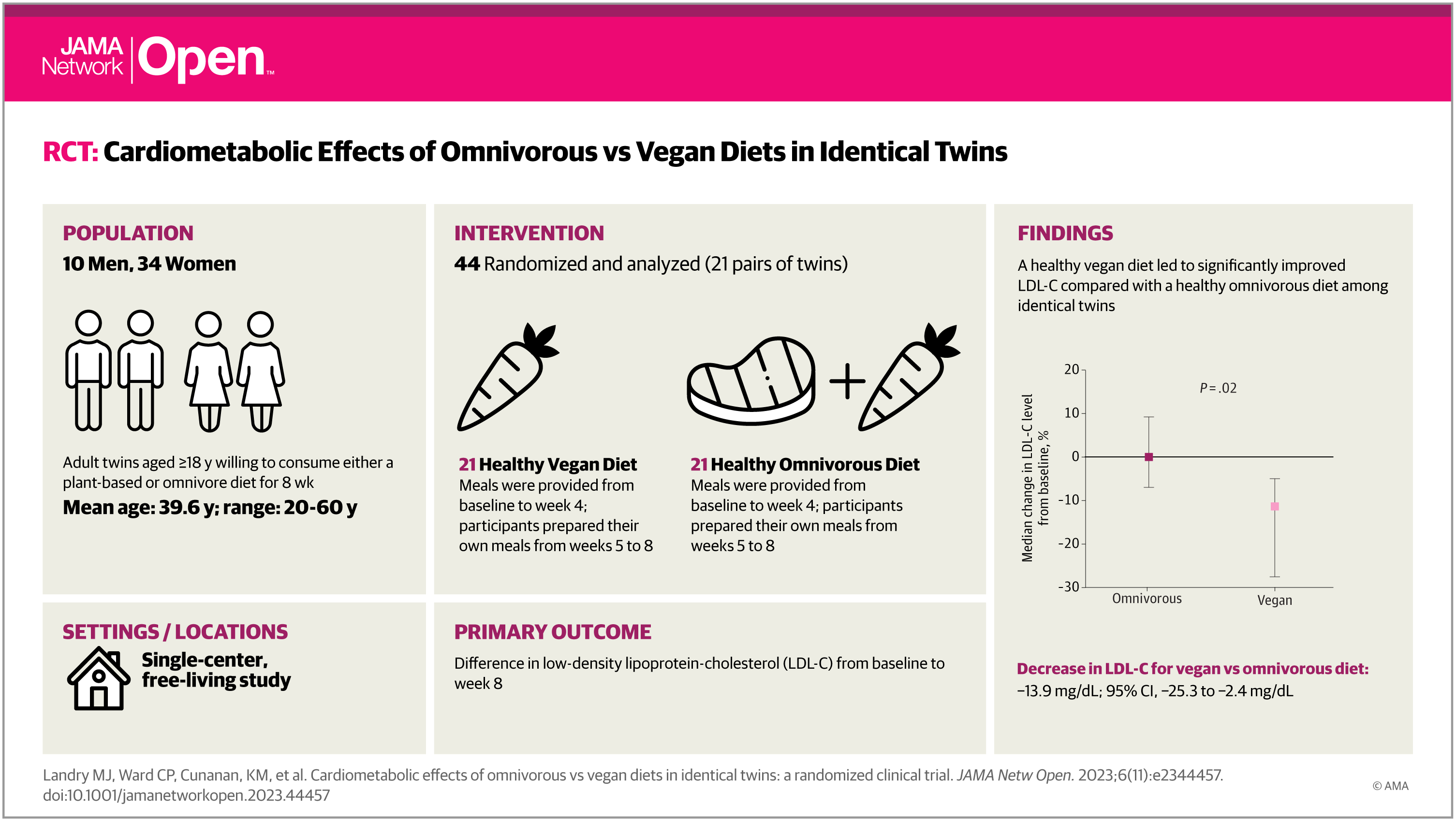This paper has been getting a lot of attention in the Dietetics community; worth a read.
The trial found that a vegan diet led to significant improvements in LDL-C levels, fasting insulin, and body weight compared to an omnivorous diet in healthy adult identical twins over eight weeks. Despite lower dietary satisfaction among vegans, the study supports the cardiometabolic benefits of a vegan diet. The study’s unique aspect was using identical twins to control for genetic and environmental factors, thereby attributing observed health differences to the diet itself. It suggests that clinicians might recommend plant-based diets to reduce cardiometabolic risks and align with environmental benefits.
In short. Eat ya veggies, and mostly veggies if not all.
Since they say the vegan group lost weight, do they have an idea of how much of the benefit is from weight loss and how much from the actual food? I run into this issue when investigating fasting - if you are overweight, losing weight by whatever means will improve your cardio-metabolic profile. But if you are already lean, how much benefit, if any? They need to do these studies while holding calories and activity equal.
Meaning The findings from this trial suggest that a healthy plant-based diet offers a significant protective cardiometabolic advantage compared with a healthy omnivorous diet.
Ok. But what does that mean? “Cardiometabolic advantage”?
As opposed to cardiovascular apparently
Cardiometabolic risk factors include, at minimum, abdominal obesity (waistline 40 inches or more in men, 35 inches or more in women); high fasting triglycerides; low ‘good’ HDL cholesterol; and elevated blood pressure. These four factors together are often referred to as metabolic syndrome.
Removed by mod
Removed by mod
Removed by mod
Removed by mod



